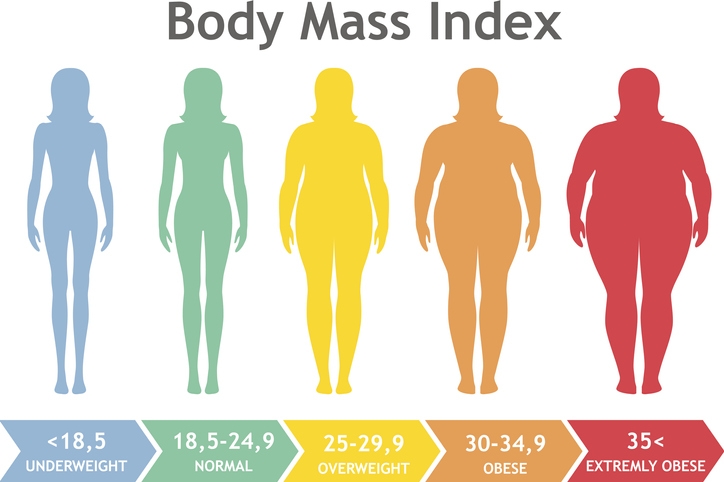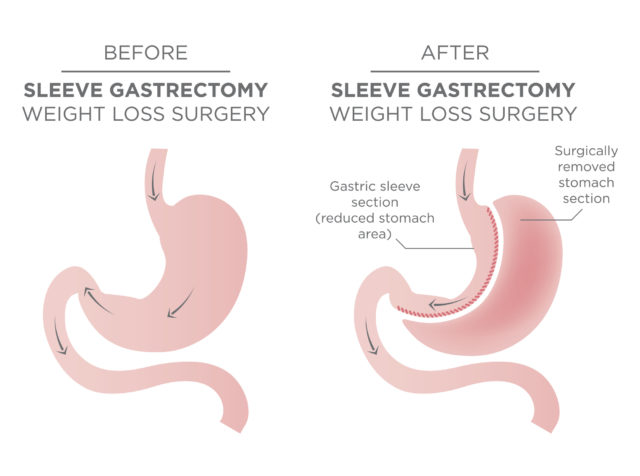What Is Metabolic Syndrome and Metabolic Syndrome Surgery?
Do you suffer from obesity or obesity-related diseases like heart disease and diabetes? You may have metabolic syndrome. This condition has a high prevalence in the United States, with over 30% of adults in the country estimated to have metabolic syndrome.
Metabolic Syndrome Defined
Metabolic syndrome does not refer to a single disease. Instead, it refers to a cluster of conditions that increase a person’s chances of developing life-threatening ailments such as stroke and/or heart disease.
In order to receive a metabolic syndrome diagnosis, you must have at least three of the following conditions:
- A large waistline with excess fat in the stomach area.
- A high triglyceride level in your blood or need medication to treat high triglycerides.
- High blood pressure or take medication to treat high blood pressure.
- Low HDL cholesterol levels or are on medication to treat low HDL levels.
- High blood sugar or need medication to treat high blood sugar.
Metabolic surgery can help reduce your risk of developing metabolic diseases, especially type 2 diabetes. Metabolic surgery refers to any of several weight loss surgeries (such as gastric bypass surgery) which are commonly performed to assist obese persons with weight loss.
In gastric bypass surgery, the surgeon staples the upper part of your stomach to create a small pouch. The surgeon then attaches this pouch to the small intestine, which allows food to bypass the larger part of your stomach. This allows you to eat less, feel full faster, and feel less hungry.
Metabolic Syndrome Risks Factors
Metabolic syndrome is dangerous and can result in the development of life-threatening illnesses. Aside from the five risk conditions discussed above, the following factors can increase your chances of developing metabolic syndrome:
- Older people tend to develop metabolic syndrome at higher rates than younger people do.
- Excess abdomen weight and overall excess weight can increase your risk of metabolic syndrome.
- Not getting enough exercise increases excess body weight and other metabolic syndrome symptoms.
- A family history of type 2 diabetes or the development of gestational diabetes can increase the risk of metabolic syndrome.
- Additional health problems. A history of heart disease, fatty liver disease, or polycystic ovary syndrome can increase your risk of metabolic syndrome.
Complications of metabolic syndrome can lead to the development of diseases. These ailments can severely impact your quality of life, as well as lead to premature death or the need for long-term medical care.
- Excess weight and high blood sugar can lead to insulin resistance and eventually diabetes.
- High blood pressure and high cholesterol will lead to plaque build-up in your arteries. This could eventually lead to cardiovascular disease, artery hardening, heart attacks, and strokes.
How Surgery Helps Relieve Metabolic Syndrome
After metabolic surgery, food is processed differently in the digestive system. For instance, after gastric bypass, food goes directly into the newly created pouch instead of the stomach. This helps patients who have had gastric bypass eat less and feel full faster. This accelerates their weight loss and allows them to lower the other metabolic syndrome risk factors. Even normal weight patients with metabolic syndrome and its accompanying diseases are seeing relief with the aid of metabolic surgeries.
Surgery alone is not an instant cure for metabolic syndrome. Most who undergo these surgeries must undergo significant lifestyle changes as well to ensure success. These changes include diet and exercise.
If you have metabolic syndrome and/or one of its related diseases, you may benefit from gastric bypass surgery. Contact Dr. Malladi’s office today for a consultation.






